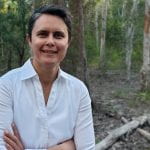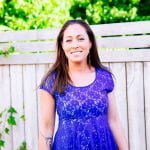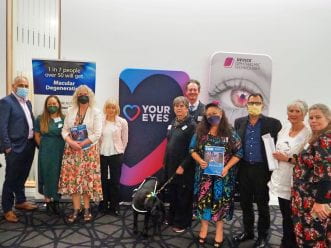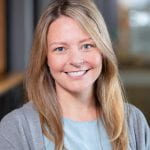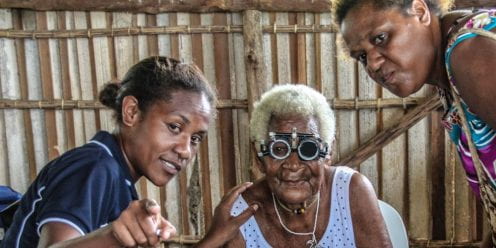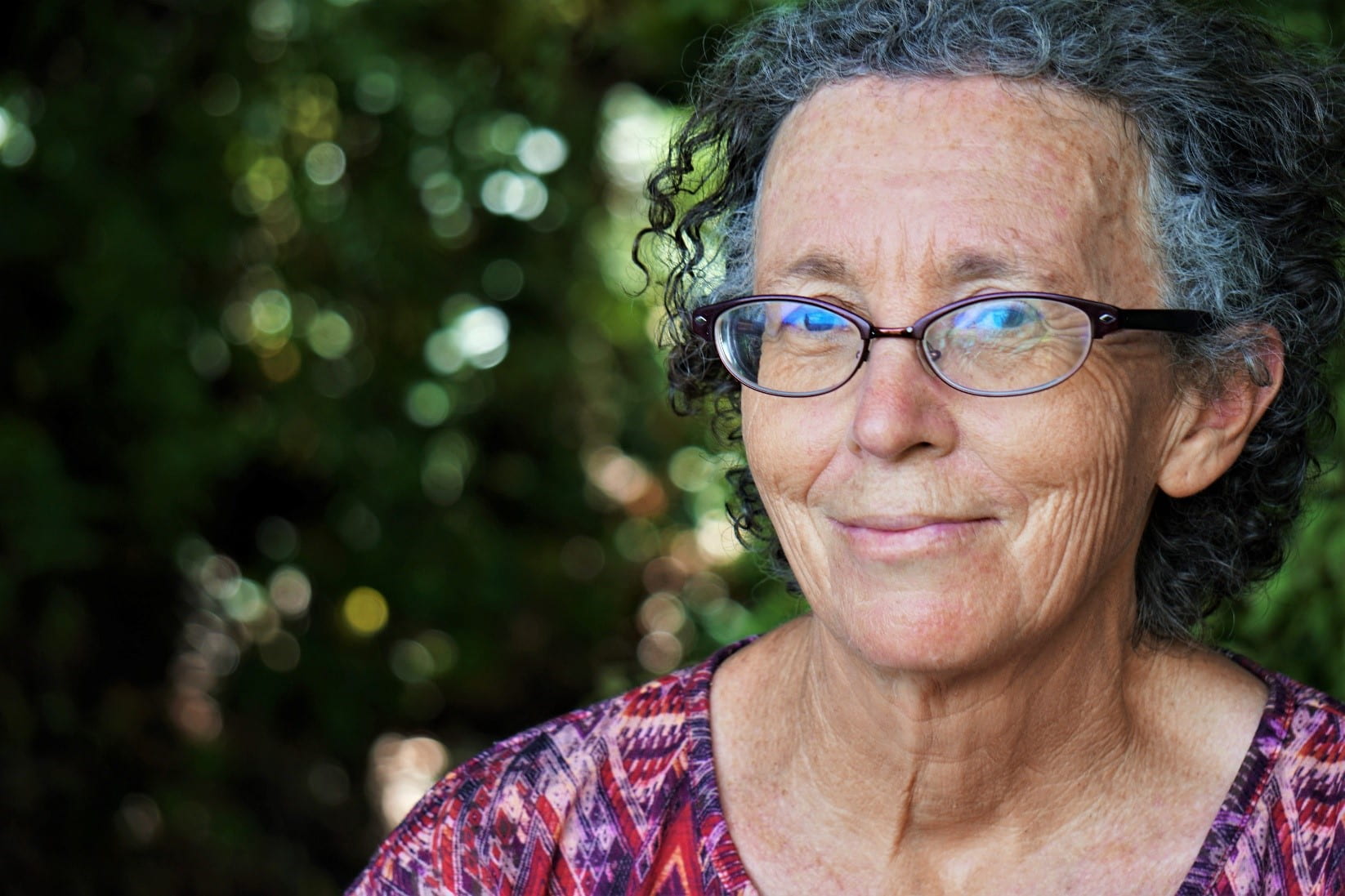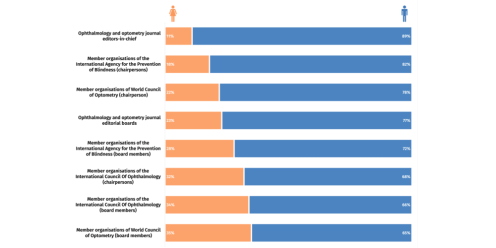
Reviewing the evidence
Improving access to eye health services in AotearoaOur team members are involved in a range of projects that collate and summarise the existing evidence on eye health. This type of research includes systematic reviews, evidence summaries, and policy documents, and describes evidence from health research here in Aotearoa and internationally.
Eye care in Aotearoa New Zealand in 2022
In 2022, researchers from the Community Eye Health team were commissioned to prepare a detailed report that summarises the state of eye care services in Aotearoa New Zealand. We used the World Health Organization’s Eye Care Situation Analysis Tool (ECSAT) to assess the eye care situation in Aotearoa, and to develop recommended actions to strengthen eye care services.
The key findings of the report were:
- New Zealand has a solid foundation for good quality eye care services, but there is room for improvement in the way we plan and deliver eye care services to ensure all New Zealanders can access the services they need.
- Service delivery-quality and workforce & infrastructure are generally “strong” or only “need minor strengthening”.
- Leadership & governance, access to services, financing, and information generally “need major strengthening”.
- The report provides a detailed list of 81 recommended actions that may help strengthen eye care services in New Zealand.
Publications:
- Download the plain language summary of the report (PDF).
- Read the published report: Silwal P, Watene R, Cowan C, Cunningham W, Harwood M, Korau J, Sue W, Wilson G, Ramke J. Eye care in Aotearoa New Zealand 2022: Eye care situation analysis tool (ECSAT). Auckland: University of Auckland, 2022.
- Read a comment on the report: Silwal P, Watene R, Harwood M, & Ramke J. (2023). Eye health for all in Aotearoa New Zealand: Summarising our situation using a WHO tool. The Lancet Regional Health – Western Pacific, 30(December 2022), 100665.
Funding:
The report was prepared for Eye Health Aotearoa, with funding from Blind Low Vision New Zealand.
Research team:
Eye Health Aotearoa: Community Eye Health researchers reporting on the eye health situation in Aotearoa New Zealand
In July 2022, Eye Health Aotearoa held an event in parliament to promote the importance of eye health. The event launched a report prepared by Community Eye Health researchers describing the state of eye care services in Aotearoa New Zealand, commissioned by Eye...
Access to eye care for Indigenous and non-dominant ethnic minority groups
We have completed two complementary reviews to scope the available evidence on improving access to eye health for Indigenous and non-dominant ethnicity groups. While we found very little local evidence, there were a range of service delivery strategies that may be relevant in our context, and we will draw on these in our Community Eye Health work.
Publications:
- Hamm L, Yashadhana A, Burn H, Black J, Grey C, Harwood M, Peiris-John R, Burton MJ, Evans JR, Ramke J. Interventions to promote access to eyecare for non-dominant ethnic groups in high-income countries: a scoping review BMJ Global Health 2021;6:e006188.
- Burn H, Hamm L, Black J, Burnett A, Harwood M, Burton MJ, Evans JR, Ramke J. Eye care delivery models to improve access to eye care for Indigenous people in high-income countries: a scoping review. BMJ Global Health 2021;6:e004484.
Research team:
International Agency for the Prevention of Blindness: Lack of evidence fails indigenous people worldwide
International Agency for the Prevention of Blindness, September 2021 By Jacqueline Ramke and Hugh Bassett, International Centre for Eye Health Globally, there are an estimated 370 million Indigenous people, living in 90 countries. Marginalisation, displacement and...
Equitable eye health services for older adults
In 2020, the Government of Aotearoa New Zealand proposed free annual “eye health checks” for New Zealand’s ~700,000 SuperGold card holders aged ≥65 years. While this proposed policy did not pass into legislation following the 2020 national election, the issues that it raised remain highly relevant to New Zealand’s eye care policies.
To assess the evidence for this policy, we conducted a systematic scoping review of primary eye care services in Aotearoa New Zealand and ten similar high-income countries. We found that most of the countries included in the review provided subsidised eye examinations for older people. New Zealand was the only country that did not provide any eye care services for older people.
Publications:
- Download the policy brief describing the main implications from this research (PDF).
- Read the published review: Goodman L, Black J, Misra S, Tousignant B, Keay L, Woodburn S, Harwood M, Evans JR, Ramke J. Primary eye health services for older adults as a component of Universal Health Coverage: a scoping review of evidence from high income countries. Lancet Regional Health – Western Pacific 2022;100560.
Funding:
This work was supported by Blind Low Vision New Zealand.
Research team:
Equity and diversity in eye health providers
We are committed to improving the diversity of students in the optometry course so that the profession can better reflect the population of Aotearoa. We are undertaking a number of projects to understand and improve the cultural safety of the course, as well as a baseline assessment of the gender and ethnicity of optometry students, practitioners and faculty in Aotearoa and Australia.
The following publications were completed by our researchers and describe a need for diversity in eye health leaders:
- Yashadhana A, Clarke N, Zhang JH, Ahmad J, Mdala S, Morjaria P, Yoshizaki M, Kyari F, Burton MJ, Ramke J. Gender and ethnic diversity in global ophthalmology and optometry association leadership: a time for change. Ophthalmic & Physiological Optics 2021;41(3):623-9.
- Yashadhana A, Zhang J, Yasmin S, Morjaria P, Holland P, Faal H, Burton MJ, Ramke J. Action needed to improve equity and diversity in global eye health leadership Eye 2020;34:1051-1054.
The International Agency for the Prevention of Blindness: Challenging representation in eye health leadership
The International Agency for the Prevention of Blindness, March 2021 By Jacqueline Ramke (Associate Professor of Global Eye Health, London School of Hygiene and Tropical Medicine), Anthea Burnett (Knowledge Consultant, IAPB), Jude Stern (Head of Knowledge...

